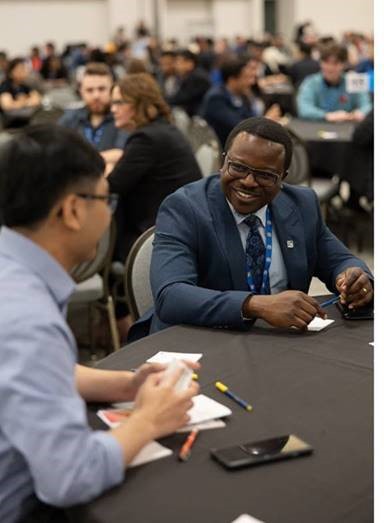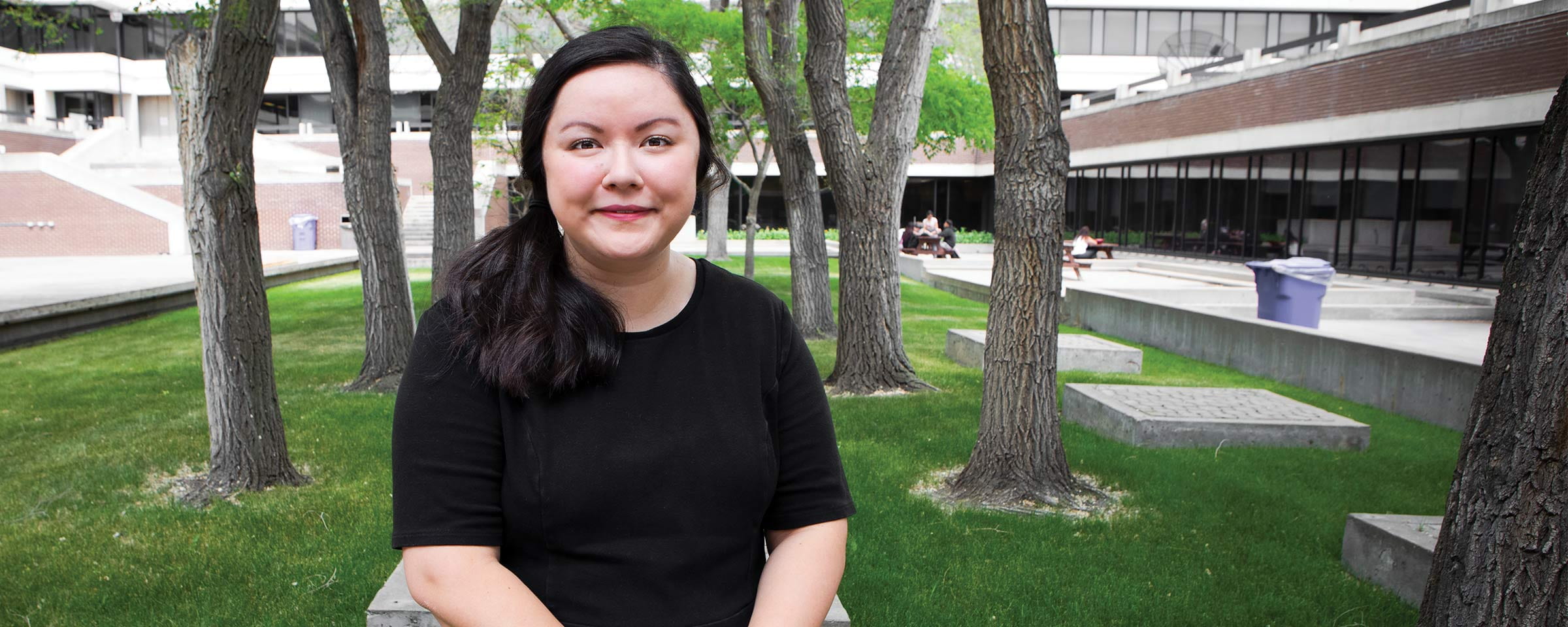2022 Directions Conference smashes stereotypes and highlights future skills
Do you have the top job skills employees will need in the year 2025?

Students in Red River College Polytechnic’s (RRC Polytech) Business, Information Technology, Creative Communications, and Indigenous Education programs had the chance to find out at a unique roundtable event on November 3.
Part of RRC Polytech’s annual Directions Conference, the roundtable session moved students through a series of intensive discussions with local industry experts about the attributes needed to succeed in their chosen field as businesses respond to constant economic and technological change.
“You don’t have to be strong in every area, but you need to know where to put in the most work to build those muscles,” says Business Information Technology (BIT) student Don Zhu, a member of the conference’s planning team.
For instance, building up leadership, negotiation, and communication skills can put students ahead of job candidates or coworkers who struggle to demonstrate those qualities.
The roundtables were sponsored by RBC Future Launch as part of its Reaction by Collision initiative, a partnership between RBC and RRC Polytech aimed at helping students expand their networks, explore roles in various fields, and discover how industry is innovating and solving problems.
“Opportunity is that special space where we can create exciting new tomorrows for ourselves today,” shares Laurie Cox, RBC Community Manager. “Opportunity is ours for the taking by knowing our worth and stepping outside of our comfort zone to form new connections. A spark of opportunity also goes by another name – RBC Reaction by Collision. It is the spark that brings industry and students together in a collision to grow networks and launch careers.”
More than 1,000 students and 200 industry representatives took part in this year’s conference. During the roundtable event, students circulated between four tables according to their field of interest while exploring four different skill areas in 25-minute sessions. Planners assigned topics to the experts hosting each table according to the skillsets most relevant to their industry.
“Diplomats”, for instance, promoted the value of leadership and negotiation in their field, while “Analysts” highlighted the importance of analytic thinking and problem solving. “Explorers” emphasized the need for employees capable of critical thinking and creativity. “Sentinels” championed resilience and emotional intelligence.
The roundtables also presented an invaluable opportunity for students to network with potential employers, and for industry representatives to get to know future candidates.
“This was the first in-person Directions Conference since the pandemic, and the energy was unbeatable,” says Amanda Gibson, a Business Administration student and planning team member.
Students eager to know more lined up to ask questions during the conference’s breakout sessions, where experts discussed topics such as growth and strategy, entrepreneurship, inclusive and diverse leadership, and digital transformation.
Students were also active on social media during the event, sharing their experiences and connecting with companies attending the conference, says Business Technology Management (BTM) student Victoria Llumiquinga Zaldumbide, who helped manage the conference’s marketing and social media.
In fact, Directions 2022 had students included in every aspect of planning and executing the event. A team of 60 volunteers managed everything from marketing and hospitality to session moderation and risk management.
“The college gave us the freedom to focus on topics we could relate to, and people really responded,” says Victoria.
One of those topics was the conference’s theme, Smashing Stereotypes, the focus of the morning’s panel discussion where speakers demolished preconceptions about the kind of people who work in particular fields and the pathways that lead to success.
BIT student and event volunteer Sam Lee says she was inspired by keynote speakers Cassandra and Stefanie Lepp, founders of The Tulepps, a grain farming operation in southwestern Manitoba.
“They smashed the stereotype that only men can run farms, drive trucks, get their hands greasy. They taught me that the worst anyone can say to me is no – and if they do, I go on to the next person until someone says yes and takes a chance on me. That was incredibly empowering.”
